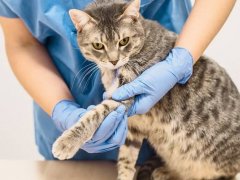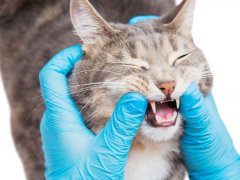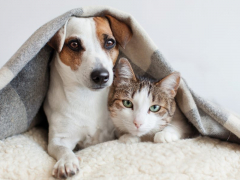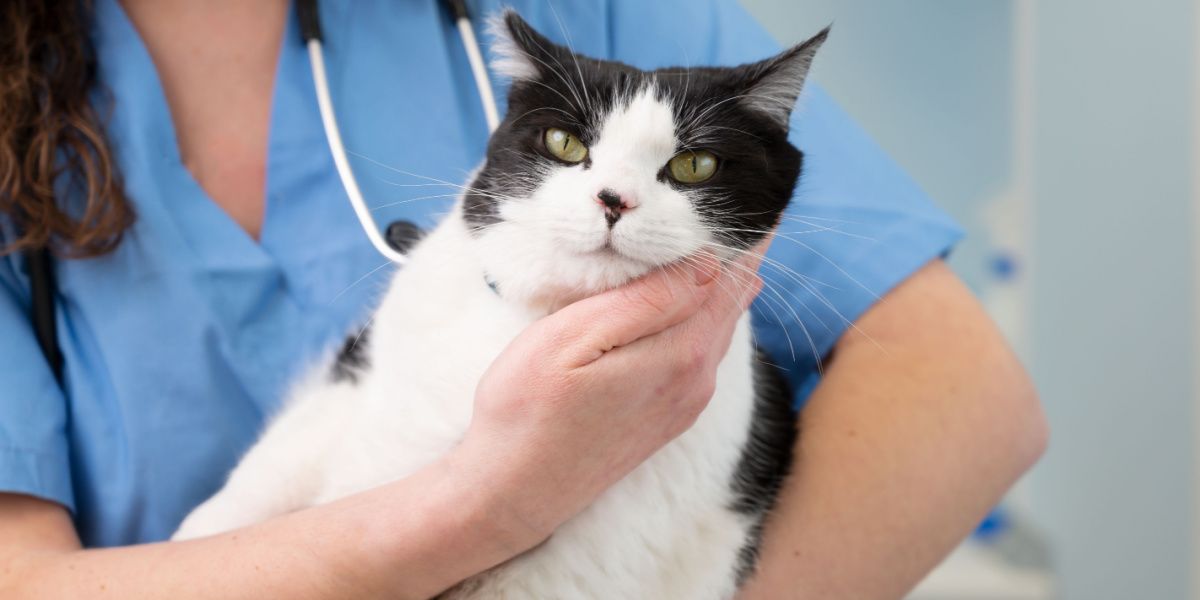
From checking clinical records from many veterinary clinics, we know that cats tend to be less susceptible to poisoning than dogs: they are, by nature, fastidious eaters, avoiding ingesting anything that they are not sure about, whereas dogs are more likely to scoff anything in front of them.
Nonetheless, cats are sometimes exposed to drugs that can cause poisoning, sometimes by owners directly giving them human medication, or through ingestion or by other types of contact. The aim of this article is to provide a good quality, accurate, easily understandable summary of the details about drug poisoning in cats.
What Sort of Drug Can Act as a Poison?
A poison is defined as a substance that is capable of causing the illness or death of a living organism when introduced or absorbed. People tend to just think of poisonous drugs being eaten, but they can also be inhaled, injected or even absorbed through the skin.
There is a wide range of substances that may act as poisons to cats, but the most common substances are listed below.
Human Medications
- Pain killers: over-the-counter medication such as acetaminophen (paracetamol or “Tylenol”), non-steroidal-anti-inflammatory-drugs (nsaids), e.g. ibuprofen (“Advil” or “Motrin”), naproxen (“Aleve”), and others.
- Anti-depressants and anti-anxiety drugs: benzodiazepines, venlafaxine (Effexor), alprazolam (“Xanax”) and others.
- Drugs used to treat ADHD: Amphetamines and others.
- Other medications: a wide range of other human drugs (e.g. ACE inhibitors, blood pressure medication, etc) can cause poisoning in cats.
Veterinary Medicines
If a cat is given the wrong dose of their own medication, or medication meant for a different pet, this can also cause a toxicosis.
Recreational Drugs
Any recreational drug is likely to cause toxicity to cats if ingested, inhaled or injected.
Household Items
Other common poisons affecting cats include common household substances such as anti-freeze, bleach, insecticides (such as permethrin), rodenticides (rat or mouse poison), etc.
What Effects Do Poisonous Drugs Have on Cats?

Cats may be poisoned by grooming themselves following contamination of their fur by a poison e.g. if a cat has bleach or antifreeze spilled onto their coat, they will clean themselves by licking it off.
The general principle is that a poison damages part of the body. Each different type of poison has a different consequence, depending on which part of the body it affects, from the brain to the liver to the kidneys to the digestive tract
How Can Cats Be Poisoned by Drugs
- Accidental ingestion is the most likely cause: e.g. a cat may find human medication that has been left out, or poison that has been left out to control rodents.
- Unfortunately, it is common for pet owners to give human medication to their cats, in the mistaken belief that this may help them. This is very dangerous and should never be done unless under direct veterinary advice.
- Cats may also be poisoned by grooming themselves following contamination of their fur by a poison e.g. if a cat has bleach or antifreeze spilled onto their coat, they will clean themselves by licking it off, leading to poisoning.
What Are the Signs of Poisoning by Drugs in Cats?
The specific effects of one drug can be very different from another, from kidney failure to seizures to unconsciousness to gastroenteritis. The list of possible signs of poisoning is very long, depending on the mode of action of the poison.
In general, there are two occasions when cat carers should suspect poisoning:
- First, when a cat has had known contact with a specific poison of some kind.
- Second, when a cat develops sudden onset signs of illness, with no obvious cause.
In both instances, the assistance of a veterinarian should be sought without delay.
General Signs of Poisoning by Drugs in Cats
Clinical signs of poisoning may include central nervous system signs (e.g. disorientation, incoordination, collapse or seizures), dullness, inappetence, increased excessive thirst, drooling, vomiting, diarrhea, difficulty breathing, muscle tremors, altered behavior such as hyperactivity, as well as other more subtle signs such as reduced urination, low blood pressure, slow or rapid heart rate, and increased or lowered body temperature.
Signs relate to the specific damage caused by the poison e.g. liver failure, kidney disease, destruction of red blood cells (e.g. by acetaminophen) or gastrointestinal irritation.
What To Do if Your Cat Is Poisoned
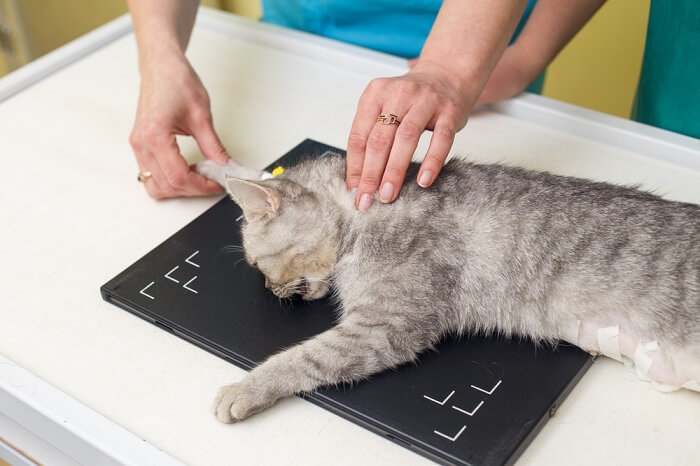
Prompt removal of the poison from the body before it affects the cat is the best approach, and this can mean inducing vomiting or decontaminating the digestive tract in other ways.
Poisoning with drugs is often a life-threatening situation for cats and needs to be taken very seriously indeed, with urgent action needed to save a cat’s life.
If you know for sure that your cat has just been exposed to a poison of any kind, you must contact your veterinarian immediately: prompt removal of the poison from the body before it affects the cat is the best approach. This can mean inducing vomiting (if the cat has eaten some types of poison) or decontaminating the digestive tract in other ways (such as enemas), or washing the cat using a special technique (if the poison is on the coat).
If you discover that your cat has been poisoned at a later stage, when they are showing signs of poisoning, you also need to take them to your vet as soon as possible: prompt treatment can be life saving.
Treatment of Poisoning in Cats
Veterinarians often work with animal poison control centers, using a pet poison helpline (such as the ASPCA), to obtain specific detailed advice for treatment of individual poisons.
- Investigations: your veterinarian may carry out a series of tests to try to work out precisely how your cat has been affected by a poison, e.g. blood tests to measure kidney function and liver enzymes. Extra tests like x-rays and ultrasound may be needed to rule out other possible causes of signs of illness.
- Antidotes. Only a few poisons have specific antidotes: examples include some types of rat poison. Your vet will guide you as to when this is appropriate.
- Emetics. If the poison has recently been eaten, the induction of vomiting by an emetic given by your vet is an effective way of emptying the stomach and removing the poison. This has to be done within two hours of the poison being eaten, which is why it is so important to rush your poisoned cat to the vet.
- Gastric lavage. In some cases, gastric lavage (“pumping the stomach out” under anaesthesia) may be suggested by your veterinarian.
- Gastrointestinal adsorbents such as activated charcoal are sometimes used to reduce the absorption of certain poisons from the digestive tract.
- Colonic lavage may be used to flush poisons out of the lower part of the digestive tract in some cases.
Preventing Cats From Being Poisoned by Drugs
The best way to prevent poisoning in cats is to ensure that all drugs are kept out of cats’ reach. This involves careful storage of all potentially poisonous products as listed above. Human medications should never be given to cats unless under the direct guidance of a DVM veterinarian.

